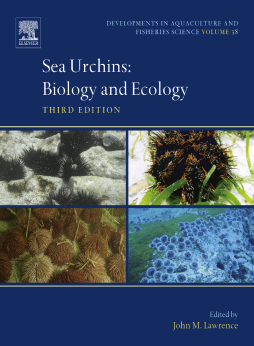
Additional Information
Book Details
Abstract
This fully revised and expanded edition of Sea Urchins provides a wide-ranging understanding of the biology and ecology of this key component of the world's oceans. Coverage includes reproduction, metabolism, endocrinology, larval ecology, growth, digestion, carotenoids, disease and nutrition. Other chapters consider the ecology of individual species that are of major importance ecologically and economically, including species from Japan, New Zealand, Australia, Europe, North America, South America and Africa. In addition, six new contributions in areas such as immunology, digestive systems and community ecology inform readers on key recent developments and insights from the literature.
Sea urchins are ecologically important and often greatly affect marine communities. Because they have an excellent fossil record, they are also of interest to paleontologists. Research on sea urchins has increased in recent years, stimulated first by recognition of their ecological importance and subsequently their economic importance. Scientists around the world are actively investigating their potential for aquaculture and fisheries, and their value as model systems for investigations in developmental biology continues to increase.
- Continues the series "Developments in Aquaculture and Fisheries Science" with a newly revised volume
- Collects and synthesizes the state of knowledge of sea urchin biology and ecology
- Expanded from previous edition to include non-edible species, providing the needed basis for broader evolutionary understanding of sea urchins
"...a valuable addition to the library of any sea urchin researcher or marine biologists."
- NORTHEASTERN NATURALIST
